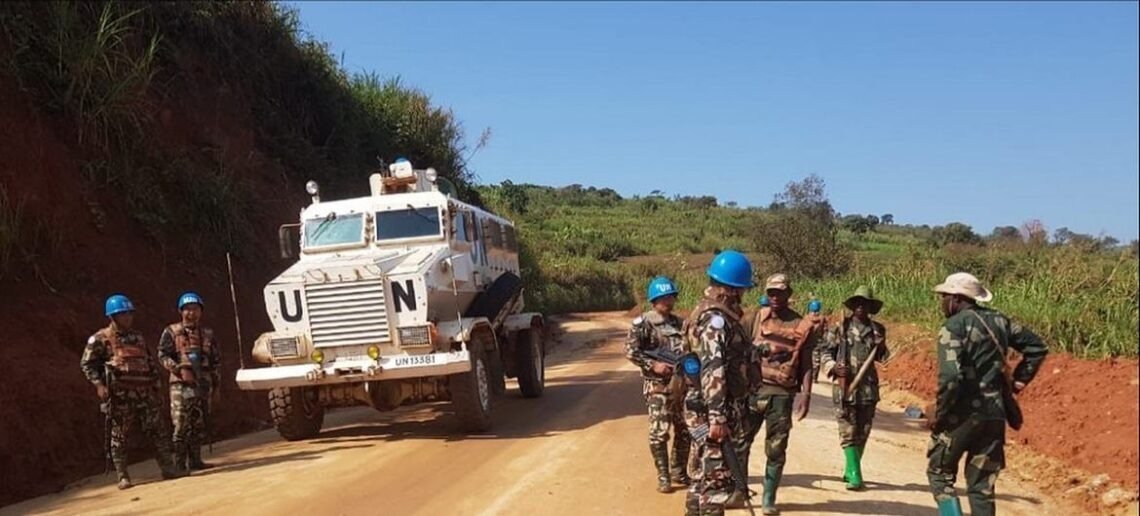The United Nations Stabilization Mission in the Democratic Republic of the Congo (MONUSCO) reported gunfire near its base in Bayo, as well as near the Ugandan People’s Defense Forces base in Bule, in Ituri Province. The mission said it activated security protocols and deployed patrols to secure the area and nearby sites hosting internally displaced persons.
Meanwhile, the Force Commander led a delegation to the town of Komanda in Ituri to meet with local community representatives and honor the victims of the massacre carried out by the Allied Democratic Forces (ADF) in July.
From 15 to 18 August, the mission deployed a mobile operations base in Solinyama, in Irumu Territory, also in Ituri, to support disarmament efforts in collaboration with religious leaders. The mission stated that the step was taken at the request of local communities.
In a related development, Human Rights Watch said in a report released Wednesday that M23 rebels, backed by Rwanda, killed at least 140 people in eastern DR Congo in July, highlighting the continued escalation of violence despite ongoing peace talks supported by the United States and Qatar.
The rights group provided new details on the wave of killings, saying the total number of deaths in Rutshuru Territory in July may exceed 300, consistent with similar UN findings last month.
The report included interviews with civilians who Human Rights Watch said survived the massacres, describing how the attacks unfolded. One woman, who witnessed M23 fighters kill her husband with a machete, recounted how she was marched all day toward a river along with about 70 women and children. She said: “They ordered us to sit on the edge of the river, then started shooting at us.” She survived after falling into the river without being hit.
Another man said he watched M23 fighters kill his wife and four children—aged between nine months and ten years—from a distance, after failing to return in time to save them, according to the report.
On 27 June, Rwanda and the DRC signed a peace agreement brokered by the United States, raising hopes of ending fighting that has killed thousands and displaced hundreds of thousands this year.
M23 has previously denied any role in the killings. Rebel spokesman Benjamin Mbonimpa wrote on X that the areas captured by the group were “well administered,” and that M23 was being unfairly blamed for the massacres.
A statement from the Congolese Ministry of Foreign Affairs said the atrocities cast doubt on the sincerity and commitment of the parties involved in the Washington peace agreement and the ongoing Doha talks.
Human Rights Watch said witness testimonies indicate the attacks took place in at least 14 villages and farming areas near Virunga National Park in eastern Congo in July.
The organization cited accounts from 25 eyewitnesses, medical staff, UN personnel, and other sources, saying most victims were Hutus, with some from the Nande community.
Human Rights Watch urged the UN Security Council, the European Union, and governments to expand sanctions, push for arrests and prosecutions, and called on Rwanda to allow UN and independent forensic experts into areas under M23’s control.

